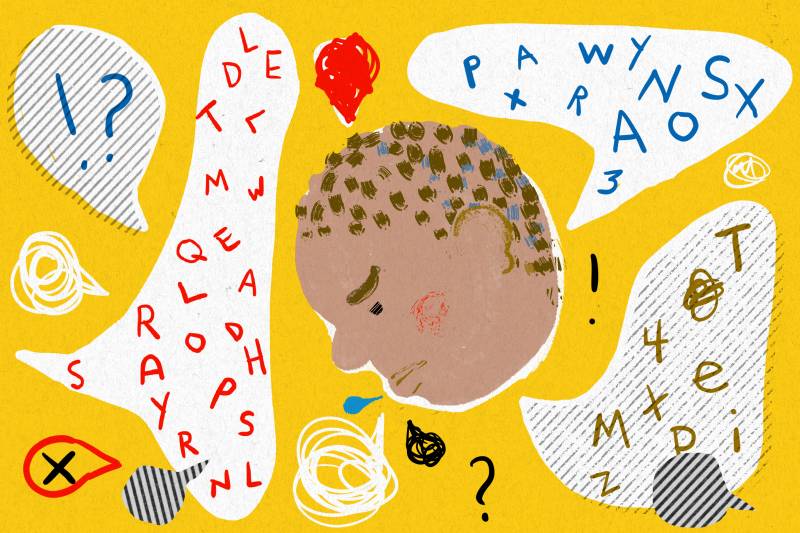Among the challenges: There are fewer resources for teaching English learners remotely, and many English learners are less likely to have access to technology. Even in a school district like Prince George's, which has distributed free devices and mobile Wi-Fi units, these children may not have support at home to navigate technology.
Lim, a former English learner herself, says it is harder to build relationships and engage her students virtually. It's not like last year, when she saw them in the hallway or during lunch duty.
"This year, I only get to interact with my class for 30 minutes and then we log out and that's it," Lim says.
When children are learning another language, she says, it's important for them to see nuances of communication, such as facial expressions and other non-verbal signs. But those are also harder to make out on a screen.
And Lim worries about her students when they go to their regular, online classes for the rest of the day. "In the mainstream classrooms, they feel shy, they don't want to talk, they don't want to make mistakes," she says.
Ninth-grader Jimmy is self-conscious about his English skills. When he first moved to Prince George's from El Salvador, he knew just three phrases in English: "Hello. How are you? Nice to meet you." (We aren't using Jimmy's last name to protect his privacy.)
Last year, when school was in-person, he said some kids picked on him because he didn't speak English well.
But he tried really hard, and he made a new friend who helped him with words he didn't understand. "He's like my brother to me. He helped me a lot," Jimmy said.
Now with his school closed, Jimmy only sees his friend in his online class. And he's sometimes afraid to speak up, worried about what his classmates will think of his English.
"Having one friend who speaks English well is a very, very good predictor of your grades," says Marcelo Suárez-Orozco, who has spent years researching immigrant youth. Now the chancellor of the University of Massachusetts Boston, Suarez-Orozco previously co-authored a study with his wife about the process of learning English.
"Very few youth in our study could say they had one friend who was an English dominant speaker."
Those friendships have been even harder to foster in the age of social distancing.
Teachers worry students like Jimmy aren't hearing even casual English on the playground or at the bus stop. Many live in neighborhoods where they don't hear English spoken at all. That doesn't only impact students, for whom English can be a way to fit in — it can also affect families who rely on children's English skills.
Lim, the kindergarten teacher, has tried to adapt her lesson plans for remote learning. One new feature is a scavenger hunt in which she asks students to show the class one of their favorites things — she laughs out loud when one kindergartener drags a big plant in front of his computer screen.
Lim still worries about her students, but says she's trying to accept there are some things that are out of her control. And she hopes to see at least some of them in April, when Prince George's schools are set to reopen.
Copyright 2021 NPR. To see more, visit https://www.npr.org.
9(MDAxOTAwOTE4MDEyMTkxMDAzNjczZDljZA004))



9(MDAxOTAwOTE4MDEyMTkxMDAzNjczZDljZA004))